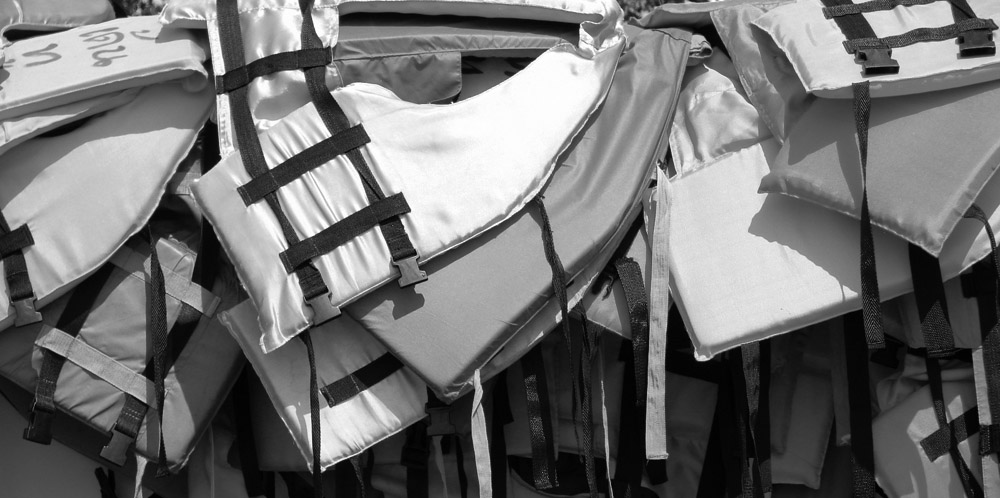Shifting the debate
Kicking off a Fabian Review series on the refugee crisis, Jessica Toale says Labour must do more to shift the debate This week Theresa May spoke at the UN summit on refugees and migrants. The world is facing the greatest refugee...
Kicking off a Fabian Review series on the refugee crisis, Jessica Toale says Labour must do more to shift the debate
This week Theresa May spoke at the UN summit on refugees and migrants. The world is facing the greatest refugee crisis in its history with 65 million people displaced globally, yet May asserted her right to control her borders. She resisted calls to accept more Syrian refugees and offered only the most minimal protections to the world’s most vulnerable. Yes, more aid is needed in the region. Yes, a political settlement is needed in Syria to stop people being forcibly displaced from their homes. But May’s intervention effectively abdicated herself of our shared responsibility to deal with this global crisis and support countries in developing regions and southern Europe which are bearing the brunt of the crisis.
Last September David Cameron made a commitment to resettle 20,000 Syrian refugees through the Syrian vulnerable persons resettlement (SVPR) scheme over the next five years. At the time it was an improvement on the previous commitment – but it was still not enough. Progress has been pitiful. The government has helped only 13 per cent of the target, it has made an active decision not to process child refugees and it has made disappointing progress on family reunification. Local authorities are hamstrung in their ability to resettle because they are suffering massive cuts.
These are political choices. The UK is not inundated with Syrian refugees. In fact the 10 countries hosting the most refugees globally are all in developing regions. The world’s 6 biggest economies host fewer than 9 per cent of the world’s refugees. The UK has received only 0.2 per cent of refugees from Syria, and we are far below the European average for the per capita count of asylum applications.
The UK can and should be doing more.
Last Wednesday, the Fabian Society International Group hosted an event on the refugee crisis to explore solutions. We heard from Thangam Debbonaire MP, chair of the APPG on refugees, and we invited Thilo Schöne, FES’s immigration policy officer, to speak about Germany’s experience and what the UK can learn from it. Schöne explained that although Germany’s open door policy had ceased, broad public support for refugee integration programmes remained. At a local level, programmes to provide language tuition, improve access to housing and jobs were working well.
The UK does not have an integration system for refugees and asylum seekers. It was abolished under the coalition government in 2011. Language support has been cut. Access to housing support has been cut. Asylum seekers who successfully gain refugee status have a 28-day ‘grace’ period in which to find new housing and employment. Many of them do not manage to do so in this period, and often find the documentation they need fails to come through fast enough.
There is also a significant knowledge gap amongst the public, and those on the left, about migration and asylum. We need to stop conflating the two issues. Theresa May’s intervention at the UN was particularly unhelpful on this point. By saying that tens of thousands of economic migrants are posing as refugees she reinforces the already negative attitudes people have towards refugees. There are other knowledge gaps too: few people know, for instance, that asylum seekers are not allowed to work while they are awaiting their status decision.
Labour has a responsibility to shift the public debate on immigration and refugees. These are people. They deserve our protection. To our credit we have continually called for the government to do more, but we are occasionally guilty of pandering to a right-wing media and failing to make the distinction between immigration and asylum. So what can Labour do?
First and foremost, we should call for the government to reintroduce specialist integration support for refugees so that they can successfully begin rebuilding their lives. Emphasis should be put on children and family reunification. The integration support refugees who are processed through the SVPR scheme receive demonstrates that the government understands how important this is.
Secondly, we must be more robust on our position on refugees. We need to stop trying to out right wing the right wing. Not only is it demeaning to people seeking protection, but also we will never win votes this way. We should view this moment as an opportunity to understand the public’s fears and frame a positive argument for supporting refugees. It is also an opportunity to be pragmatic and talk about the things people most care about – housing, the NHS, education – and to invest in and improve these services. The German SDP is attempting to do this.
Thirdly, we need to hold the government to account for the superficial and unambitious measures it is taking to address the crisis. Our country should be sending more officials to countries on the frontline in Europe to help process refugees. We need a clear long-term conflict resolution strategy in Syria and an aid strategy that supports countries around Syria to cope. And as David Miliband said this week, we should be taking four times more refugees from Syria than we currently are.
Finally, we should push for a European strategy to address the refugee crisis. So far attempts have been underwhelming and unsuccessful. The proposed “refugee matching scheme”, under which both refugees and potential host countries could have a say in where people are resettled, has been an interesting idea, but it treats refugees too much as economic migrants than people who have a right to be protected. Relocating refugees throughout Europe should be based on their preferences and our legal obligations to protect, not just their skills.
As the Civil Society Platform for Peacebuilding and Statebuilding said in a statement this week political courage is needed at home to reject shrill calls to build walls and close ourselves off from the world.
Given the nature of the global crisis, never have the stakes been higher, and now more than ever we need the global political will to affect change.
Further reading:
- Civil Society Platform for Peacebuilding and Statebuilding. “Peace and Migration: Realising the links http://www.saferworld.org.uk/news-and-views/comment/221-peace-and-migration-realising-the-links
- Refugee Council. “England’s forgotten refugees: out of the fire and into the frying pan” http://www.refugeecouncil.org.uk/assets/0003/7935/England_s_Forgotten_Refugees_final.pdf
- BBC News. “Migrant crisis: Migration to Europe explained in 7 charts” http://www.bbc.co.uk/news/world-europe-34131911

